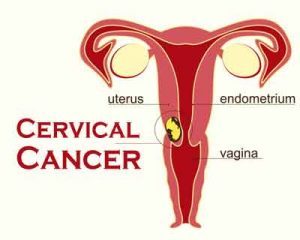- Home
- Editorial
- News
- Practice Guidelines
- Anesthesiology Guidelines
- Cancer Guidelines
- Cardiac Sciences Guidelines
- Critical Care Guidelines
- Dentistry Guidelines
- Dermatology Guidelines
- Diabetes and Endo Guidelines
- Diagnostics Guidelines
- ENT Guidelines
- Featured Practice Guidelines
- Gastroenterology Guidelines
- Geriatrics Guidelines
- Medicine Guidelines
- Nephrology Guidelines
- Neurosciences Guidelines
- Obs and Gynae Guidelines
- Ophthalmology Guidelines
- Orthopaedics Guidelines
- Paediatrics Guidelines
- Psychiatry Guidelines
- Pulmonology Guidelines
- Radiology Guidelines
- Surgery Guidelines
- Urology Guidelines
Continue cervical cancer screening even beyond 65 years, says new Study

Cervical cancer is often thought of as a disease that primarily affects young women. Because of this, many older women fail to keep up with appropriate screening as they age. While current guidelines indicate that screening can be stopped for average risk patients after age 65, many women lack the appropriate amount of screening history to accurately assess their risk. A new study in the American Journal of Preventive Medicine found that incidence rates of cervical cancer do not begin to decline until 85 years of age among women without a hysterectomy and that women over 65 who have not been recently screened may benefit from continued surveillance.
"An older woman who has not had her cervix surgically removed has the same or even higher risk of developing cervical cancer compared to a younger woman," said lead investigator Mary C. White, ScD, Chief of the Epidemiology and Applied Research Branch, Division of Cancer Prevention and Control, Centers for Disease Control and Prevention (CDC), Atlanta, GA. "Women who have not had a hysterectomy need to continue to be screened until age 65, and possibly later if they have not been screened for many years or are at special risk, consistent with current U.S. Preventive Services Task Force recommendations."
In 2013, one-fifth of cervical cancer cases and one-third of cervical cancer deaths occurred among women 65 years of age and older. Current recommendations say that screening can be stopped at age 65 if an adequate testing history indicates consistently negative results. Three consecutive negative cytology results or two consecutive negative co-test results within the last 10 years, with the most recent test within the last 5 years, are considered sufficient reason to stop screening average risk women after age 65.
Using data from the 2013 and 2015 National Health Interview Survey (NHIS), investigators looked at the use of screening tests and rates of cervical cancer for women 65 years of age and older. They found that when corrected for hysterectomy, incidence rates of cervical cancer increased with age until 70 and did not begin to decline until age 85.
The data also revealed that many women approaching the "stopping" age of 65 were not getting sufficient screening. Researchers established that the proportion of women not recently screened increases with age. While only 12% of women in their 40s had no recent screening history, that number progressively increased for women in their 50s and 60s. Nearly 850,000 women aged 61-65 years had not been screened within the last five years.
"A recommended upper age limit for routine screening may lead women and providers to assume that cervical cancer is a younger women's disease," explained Dr. White. "After adjustment for hysterectomy, some of the highest cervical cancer incidence rates occur among women older than 65 years, with notably higher rates among older black women. Premature discontinuation of routine screening among women in the years before age 65 could contribute to preventable cases of invasive cervical cancer and deaths."
Cervical cancer can affect women of all ages. This new study highlights the importance of regular screening for older women who are at high risk or without documentation of adequate prior screening in order to help prevent cervical cancer deaths. Going forward, given increases in life expectancy and the high rates of cervical cancer after 65, women in midlife need to continue with routine cervical cancer screening to look for changes that may need further follow-up.
"In the short term, efforts could be undertaken to clarify misperceptions about the risk of cervical cancer among older women and providers," concluded Dr. White. "Messages about a 'stopping age' need to emphasize the recommendation for an adequate screening history of previous negative tests before screening is discontinued, not just chronologic age."
You can read the full Article by clicking on the link :
Mary C. White, Meredith L. Shoemaker, Vicki B. Benard. Cervical Cancer Screening and Incidence by Age: Unmet Needs Near and After the Stopping Age for Screening. American Journal of Preventive Medicine, 2017; DOI: 10.1016/j.amepre.2017.02.024

Disclaimer: This site is primarily intended for healthcare professionals. Any content/information on this website does not replace the advice of medical and/or health professionals and should not be construed as medical/diagnostic advice/endorsement or prescription. Use of this site is subject to our terms of use, privacy policy, advertisement policy. © 2020 Minerva Medical Treatment Pvt Ltd